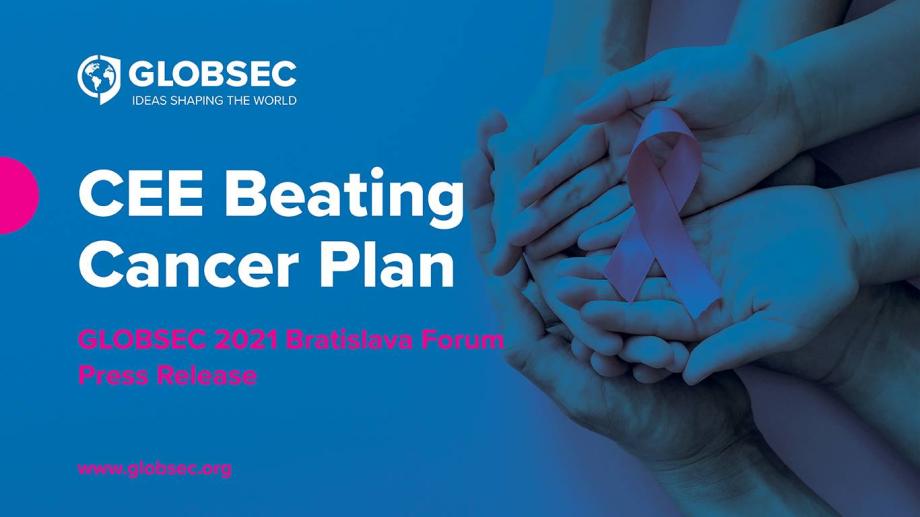Lucia Ďuriš Nicholsonová: The Slovak cancer patient does not have access to 65 percent of drugs

Slovakia is notorious in Europe for the highest rate of dying of cancer. According to many, Slovakia holds the lead also because Slovaks still do not have access to innovative and advanced forms of treatment of oncological diseases.
The topic of oncological disease is still strong in Slovakia and resonates throughout the region of Central and Eastern Europe. Among other exciting topics, GLOBSEC Bratislava Forum 2021 focused on oncological diseases and gathered politicians, specialists, and doctors in one place.
As Slovak MEP Lucia Ďuriš Nicholsonová points out, while in the Nordic countries, the average survival rate for cancer is at the level of 60 per cent, the countries of Eastern Europe have it only at the level of 45.
"For example, a Slovak patient does not have access to 65 per cent of the important drugs that could alleviate cancer," Nicholson said in a discussion at the GLOBSEC conference, one of the panels of which was dedicated to solving the problem of cancer in our region.
Slovakia still one step back
The MEP further recalls that the European Medicines Agency (EMA) has approved up to 27 new medicines since 2011, but only three are available in Slovakia. The coronavirus pandemic was also complicated, which delayed the diagnosis and treatment of cancer.
It confirms well-known health analyst and expert Martin Smatana, who adds that up to 85 per cent of changes can be made by the state and the Ministry of Health itself. Smatana also emphasizes the difference in the number of robotic surgery centres.
Slovakia has only one similar centre, while in the neighbouring Czech Republic, we find as many as 11. The analyst also outlined the topic of medicine availability and underlined that only a few of them are reimbursed from public insurance.
"Only a third of all new innovative medicines are covered by health insurance in our country. The availability of standard cancer treatment is even lower. Many of the medicines are only available based on exceptions approved by health insurance companies. The rules are not transparent nor reliable," said Smatana at the discussion of the GLOSBEC conference.
At the same time, he says that Slovakia is lagging in screening for all diseases. For example, a 17% decrease in mammograms is seen in 90 unidentified cases, while 36% of them would still be in the early stages of the disease with a view to recovery.
Shorter time from diagnosis to treatment
Daniela Kállayová from the Ministry of Health also took an active part in the debate, saying that the role of their ministry is to strengthen and constantly develop existing national initiatives in the field of prevention, early detection, diagnosis, treatment, research, and innovation.
"Cancer control in Slovakia requires the investment of significant resources and effective coordination at the national level. There are significant performance gaps and lack of follow-up in cancer control strategies in Slovakia," explains Kállayová.
Currently, the length from detection and diagnosis to the treatment itself is also a significant problem. As the well-known oncologist, Štefan Korec says. The length is approximately 180 days.
"Our ambition is to reduce this period to 50 days," he said during the GLOBSEC conference, adding that it was necessary to take a step into a new era of cancer treatment, which includes the use of technologies based on artificial intelligence.
This year, the Ministry of Health is preparing an update of action plans to combat cancer for 2021 - 2025. The program should focus on early detection, diagnosis, and research of cancer. In the last year, around 2.7 million people in the EU were diagnosed with cancer, and 1.3 million of them died.
In addition, the number diagnosed with cancer is increasing every year. GLOBSEC and OnkoAliancia have joined forces to create an independent platform to discuss the state of oncology care in Slovakia and Central Europe. The Central European plan to fight cancer will culminate at the end of 2021 by signing a Memorandum on Improving the Treatment of Cancer in Slovakia.
Media contact
Adam Sipos
+421 948 066 234
[email protected]